I recently launched my first SaaS product after four months of planning and design and another eight months of development. That gave me a LOT of time to start planning for growth and in particular, customer acquisition.
I read everything I could from Sean Ellis, Liam Gooding, Ryan Holliday, Andrew Chen, and many others. In fact, I spent over 100 hours preparing one hundred different growth hacks to implement for my startup and I have prepared them for you to review below.
These growth hacks can be used by startups and established businesses as well. Take what you can and apply them, but remember, they won’t work for every business or strategy.
I broke these down into different stages, which Dave McClure came up with and appropriately named “pirate metrics” (due to the AARRR acronym). They are:
- Acquisition
- Activation
- Retention
- Referral
- Revenue
Most of the growth hacks listed here are in the “Acquisition” stage.
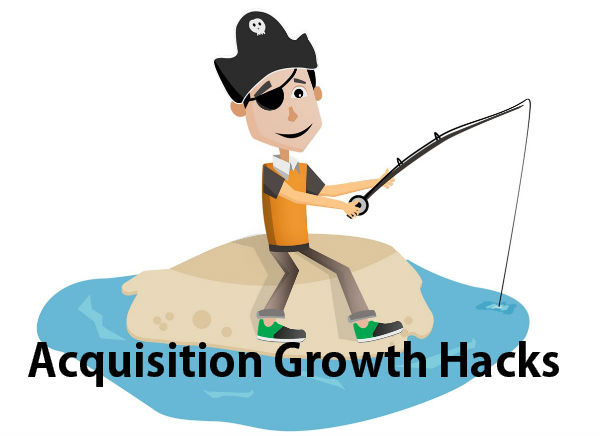
1. Launch on a Tuesday
Almost ALL websites see a dip in traffic on the weekend. Friday’s get lost in the weekend excitement as well. Monday’s are catch-up days for most. Tuesdays allow you to capture most of the week. This is why most music artists release their work on Tuesdays as well.
2. SlideShare Commenting
Get noticed by commenting on SlideShare presentations. Go ahead…try it, it works like a charm!
3. Amazon Book Reviewing and Commenting
If there are books published in your niche on Amazon and you’ve read them, start reviewing them. If there aren’t any books…well then, write one!
4. Sign-up Functionality that Stays at the Top
Use a hello bar style fixed position sign-up form.
5. Add Exit Intent to the Website
This is more common on blogs, but works just as effectively on your main marketing site.
It doesn’t have to be an offer for your product. It could just be a survey or a giveaway in order to capture their email address. Use an autoresponder to convert them from there.
6. Submit the App to Award Sites
Maybe your app looks great. Maybe you had a cool explainer/teaser video done. Submitting them to award sites can give you recognition, awareness, and links!
7. Use the Thank You Page
When someone does sign up to your blog, take them to a killer “Thank You” page that references the app with screenshots to highlight the benefits.
8. Wavelength by MailChimp
This handy tool lets you find similar email blasts to yours.
This could be fodder for potential customers, or you could try building partnerships this way.
9. Startup App Directories
I have compiled a list of over 100 startup directory websites in this blog post.
10. Pay for Triberr Influencers
If there is a little room in the budget, paying for influencers to push your app through Triberr can help.
11. Viral Content Buzz and Just Retweet
Share other content and earn credits on Viral Content Buzz and JustRetweet. Then offer those credits for others to retweet your Twitter posts.
12. Virtual Assistants
Use oDesk and hire a low-cost virtual assistant to go to the websites of your ideal customers and fill out web forms and collect/send emails. Elance and Freelancer work as well.
Warning: This is a little spammy, so make sure the messages are targeted and personalized.
13. Put “>>” at the End of Your Call-to-Action Buttons
A really great breakdown of some CTA tests can be found here.
14. Tweet Embeds of Social Proof
HubSpot put together a great walk through of this technique.
15. Require Shares for Your Best Content
If you have a piece of high quality content that has proven to be popular and frequently read, use Pay With A Tweet (or something similar) to require people to share it in order to access it.
I did this with great success on the web app directories link in #9. Because of the shares, the articles ended up getting posted to Hacker News and I received thousands of visitors.
16. SellHack for LinkedIn
Find hidden email addresses on LinkedIn with the SellHack browser extension prospecting tool.
17. LinkedIn Group Owners
Send exclusive offers to LinkedIn Group owners (active/engaged ones only).
18. LinkedIn Group Blog Promotion
Join groups on LinkedIn (you can join up to 50) in your niche. When you write blog posts on your website, be sure to use a social sharing plugin to promote to your groups.
19. Old Tools That No Longer Exist
Search for blogs about products in your space. If there are products listed that don’t exist anymore, email the author telling them that X product no longer exists. Suggest replacing X product with your product and provide a brief description and link, or at least try getting your product added to the list.
20. Discounts to Influencers
Find influencers in your niche and offer them heavy discounts (or even a free account) in exchange for some promotion.
21. Submit to Social Bookmarking Type Sites
Submit your blogs to StumbleUpon, Reddit, Growthhackers, HackerNews, Inbound.org, BizSugar, etc.
Just make sure your content is relevant to whatever community you submit your content to.
22. SnapGuide and Guides.co
Post How-To’s to SnapGuides and Guides.co
23. Email News Publishers for Your Industry
Use this handy little tool to scrap Google News API.
Then, find a virtual assistant (through Mechanical Turk or oDesk) to find the author name and email for all the authors who have covered your niche. You now have a solid list of publishers to contact about covering your business.
24. Ad Placement/Sponsorships
Get banner ads placed on key blogs or websites where your users visit. Especially helpful if there aren’t other competing ads.
25. Upload Training Videos to Lynda
Upload your training videos to Lynda, an online collections of training videos.
26. Reach Out to Other Guest Bloggers
Find people who contribute guest blogs and ask them to contribute a piece to your blog. You may have to pay them if you are starting out as there isn’t anything in it for them if you have a small audience.
Start by finding people who already contribute to other websites in your niche.
27. Leverage Your Existing Providers
If you use tools and they also service your target market, try getting a guest blog on their website. Since you are a paying customer, this will help increase your chances.
28. LaunchBit
You need a $1,000 per month budget to use this, but you can get your app featured in other company’s email blasts with LaunchBit
29. HARO
Use HARO for press opportunities.
- You can respond to any press inquiries in your industry.
- You can get ad placement and be talked about before the list of press inquiries.
- Use a tool like Bitesize PR to automate this process for you!
30. Sponsored Content
Use Izea to get links in content or sponsor posts
31. Fiverr Promotion
For $5 you can get someone with thousands of followers to tweet your content or do other forms of promotion. Just make sure their audience is who you are trying to appeal to. There are lots of fake and crap accounts on here so choose wisely.
32. Pay for Reviews
You can use SponsoredReviews to get paid reviews of your app. Be sure you check the quality of the websites who try to bid on your opportunity. I’ve found that most are rather spammy. Be sure all reviews follow FTC guidelines for disclosure as well.
33. Showoff Your PR or Customers
If you get a write-up or mentioned from key news sources, be sure to feature their logo on your website. I’ll be featuring Search Engine Journal now!
34. Pop-ups
Use OptinMonster, or other pop-up solutions, to provide attention getting calls to action for your app or your email newsletter. (disclosure: SEJ uses OptinMonster and loves it)
35. Get PR
Use a service like PRserve or Publicize or PRLeads to try and get PR. DIY options like PressFriendly or JustReachOut can help as well.
36. Discounts for Beta Testers
Give half off or some other deep lifetime discount to beta testers who helped you validate your model.
37. Social Listening
Use Colibri.io to monitor conversations about your industry/product and jump into the conversation.
38. Create Templates
Use free templates (like BidSketch does here) in exchange for an email. Then use autoresponders and email marketing to upsell them.
39. Chrome Webstore
Create a Chrome extension to open your web app when opening the browser. Costs just $5.
BaseCRM did this and got over 30,000 downloads!
40. Daily Deal Sites
If you have an app, you can use sites like:
- AppSumo
- Rewardli
- MightyDeals
41. Roundups
If people put together roundups (whether in blogs or email newsletters) in your industry, reach out to them to try and get your app, blog, etc featured in the roundup.
42. Highlight User Onboarding
Assuming you have a killer onboarding process (which is part of the activation growth hacks) then you can submit it to UserOnboarding to try and get it featured there.
43. Guest Blog
Find blogs that your target customer visits and ask them if you can submit a blog post. Make sure it’s your best and don’t self promote. You’ll get a link to your app in your byline at the end of the post.
For every one blog you post on your own blog, try and write another one as a guest a blog. Some sites like Business2Community and Social Media Today also syndicate content from other bloggers. Submit your blog’s RSS feed to apply.
44. Use Paid Ads to Promote Your Press
If you are able to land coverage in news outlets, or get a sweet review of your tool posted somewhere…use paid ads to promote THOSE pieces of content. Having a third party promote your app is much better than you trying to self promote.
45. Conversion and A/B Testing
You should always be testing. Using tools like Optimizely or Visual Website Optimizer can help you perform split tests.
Use a tool like CrazyEgg or Inspectlet to see where visitors are clicking (or not clicking).
46. Ask for Beta Users on Social
Use your social profiles to ask for beta users. Post in LinkedIn groups, Google+ communities, Facebook groups, etc. Don’t advertise…ask for help.
47. Handwritten Notes
Send handwritten letters to key accounts / influencers. Actual handwritten letters are extremely rare these days so you will stand out.
48. Blog Commenting
If you spend time reading blogs in your niche (you should!), leave thoughtful/relevant blog comments.
Use the website/url field to link to your app.
Bonus tip: In the “Name” field use ‘your name @ company’ for more brand awareness for those that don’t click the link.
49. Utilize an FAQ Page
Create a separate page on your website specifically for FAQ’s.
- Position questions around your key selling points.
- Monitor search queries to your site and build content specific to those queries.
- Make note of actual issues or questions your customers are having and address them to lessen support requests.
50. Ask Users to Take Pics w/Your Product
If you have some enthusiastic customers, ask them to take pictures with your product and have them share it on their social feeds.
You can then use this social proof on your website!
51. More Engaging Signup/Login Page
Show a picture of your app in the background. Make sure it is faded so it doesn’t interfere, but show off the product.
52. Use Google Hangouts/Skype for Support
Use software your customers are familiar with to provide support. This builds a stronger relationship with your customers and free trial users and allows you to collect live feedback.
You can also use these technologies for a more streamlined onboarding of new users early on.
53. Downsell at Signup
Maybe you have potential users who aren’t ready to commit just yet. Try to offer them something else. Maybe an ebook or training course? A very limited version of your product? You can then try upselling to them later.
54. Host Your Videos on Wistia
By hosting your videos on Wistia when someone embeds your videos on their site, you get the link and SEO juice (versus YouTube). For this reason, you should also put a link at the beginning of your video descriptions.
55. Converse with Authors not Publishers
Find the authors of blogs or news articles and converse with them directly. This greatly improves your chances of getting coverage with the publisher or potentially being introduced to key third parties.
56. Communicate
Communicate as much and as early as possible (live chat, personal emails, etc). By communicating directly with new users, you greatly increase your odds of them converting to a paid user. This is especially true when it comes to free trial users.
57. Interview Users
Feature user stories on your blog and in your emails. This works even better if you can tie in how they are utilizing your product successfully.
58. Repurpose Content
Convert blog posts into presentations, infographics, etc. Transcribe video and audio. Take sections of blog posts and spin them off on their own.
59. Feature Key Figures in Your Niche
This could be a joint webinar, or maybe just advice that is applicable to your user base that you are sharing.
60. Training Courses
Put up training courses within your niche on sites like Udemy or SkillShare. You can choose to charge for the course to add a new revenue channel or give it away to have more people learn about your product.
61. Third Party Partnerships
Look for products in your industry that do not compete and try to integrate with them.
- Joint ventures
- Joint webinars
- Exchange guest blogs
62. Interview Influencers
Interview influencers and then do a write-up. Link to them within the write-up and let them know when it’s published. They like to demonstrate their expertise and they’ll be promoting you while doing so.
63. Cold Emailing
Send 10 to 20 emails per day to your targeted prospects with a personal email. It isn’t scalable, but that’s ok early on. Spend the time to find their name, reference their business/website, etc.
64. Case Studies for Different User Types
If you have multiple user types or subsets of users then try showcasing each of them with their own case studies.
65. Siphon Competitor Links
If you feel you have a better product and you have some courage – reach out and ask them to link to you instead! This is especially helpful if the competing product is no longer being sold or looked after.
66. Marketplace Integrations with Other Apps
Integrate with well known products that will expand your reach to their userbase. Integrate with CRM’s, billing systems, popular tools like Evernote, etc.
Sometimes you can get featured in their marketplace, so ask them what you need to do to make that happen.
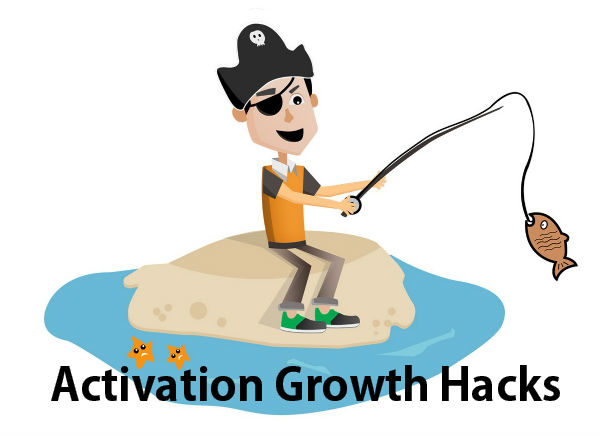
67. Make Signing Up Easy
Just require an email (that will be their username) and one password input initially. Don’t have them confirm the password, don’t ask for an email AND a username (email can be the username). Make it as quick and painless as possible.
68. Auto Login After Signup
Don’t require a confirmation and instead just get them right into your product.
69. Send Personal Email
Within 24 hours (or even right away), send them a personalized email asking them specifically why they signed up. What made them pull the trigger? This is extremely important data as you want to make sure that your product is delivering what your marketing messages are promising.
Ideally, with your analytics software you can save the note to their user profile. This is important so you can ask them why they canceled or chose not to continue and compare those answers.
Early on you can do this manually, and look to automate this (so long as it shows from you) later.
70. Send Gifts
Send new users real gifts. Even better if the gift helps them to get more out of your product. I like to give ecards.
71. Engage Influencers Who Signup
Track influencers using IFTTT. Have a script check their email address, track their Klout score. Then go and follow them, tweet and comment where possible.
You always want to be connected with the influencers who are using your app or product.
72. Tweet or Mention New Users
Tag new users (or one’s with the biggest following if there are lots) in tweets and on Google+ after they sign up and thank them for the signup.
73 Map Out Your Email Sequence
Have your drip campaign in place before you launch. You need to walk users through your product when they are free trial customers.
Add a win back sequence after 60 days (and/or 6 months) after a user cancels. Let them know you’ve added new features.
74. Extended Free Trials
If a free trial user doesn’t convert, send them an email and let them know you’ve added X number of days to their free trial. Be sure you use this email to guide through getting the most out of your product.
75. Personal Outreach as a Followup
Beyond your initial personal email asking why they signed up, continue the conversation (or try and start it again) by asking them to help spread the word and to give you feedback.
Give them your cell phone #. They will feel special and will be willing to help you out if you show this personalized effort, while simultaneously being more engaged with your product.
76. Find Your “Aha” Moment
This will take months of evaluating your analytics to find that one element that leads to the highest activation rate. Once you have found what it is, focus on guiding your free trial users to that point as quickly as possible.
For example:
- For Facebook, it’s having 10 friends in 7 days
- For Twitter, it’s following 30 people.
77. Automated Webinars
Use StealthSeminar to record a webinar once, but have it replay at designated times to give the feeling of a live webinar.
78. Great Onboarding Experience
Don’t leave any questions or doubts about how to use your product. Provide a rich onboarding experience, then follow that up with an email drip that walks them through using your app to its fullest capabilities.
79. Spruce Up the Boring Pages
Use log in pages, log out pages, forgot password pages, etc to expand on in-app features, testimonials, and maybe even little easter eggs.
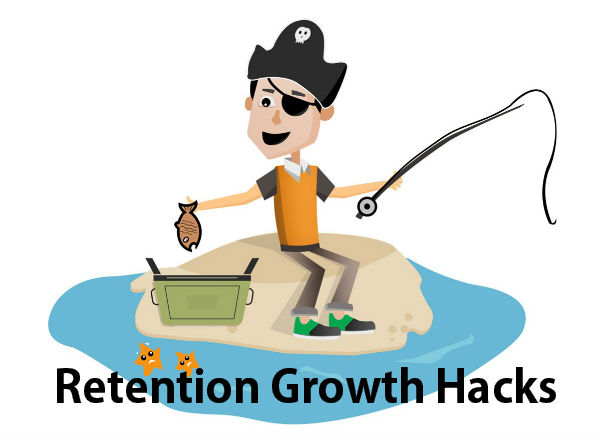
80. Report on Positive Statistics
You don’t want users to have a negative feeling when they seen an email from you, so report on positive statistics first and foremost, then the negative things can be after/below that and not stand out as much.
81. Email, Email, Email
Don’t be worried about “spamming” your users. If you are able to provide value to them they will want more of it. Here are some examples of companies using email to the max:
- You’ve been outbid (eBay)
- Year in Review, or Group Discussions, or Connection Requests (LinkedIn)
- New friend/follower (Facebook/Twitter/Google+)
82. Customer Thank You Cards
Send hand written notes to customers thanking them for being a valued customer.
You could set this up where you get an alert once they hit a certain revenue earning and then you send it to them.
83. User Exclusives
Send users exclusive content that no one else gets. Provide a member forum, tools, webinars, hangouts, gifts, etc.
84. Credit Card Expiration Notices
Don’t let credit cards expire. Send email reminders about the value they get and what they risk losing if they don’t update their credit card details. You can use a service like Churn Buster.
85. Leaderboards
Think of ways to showcase your users in a leaderboard format. Give awards to most active users.
86. Gamify
Gamify elements within your product/app for discovery. For example, as users use certain features it may unlock a badge. They can then show off the badges to other users.
87. Inform Users What They Missed
When users log back in, have a message that informs them of new things going on with the app or suggest things they should do.
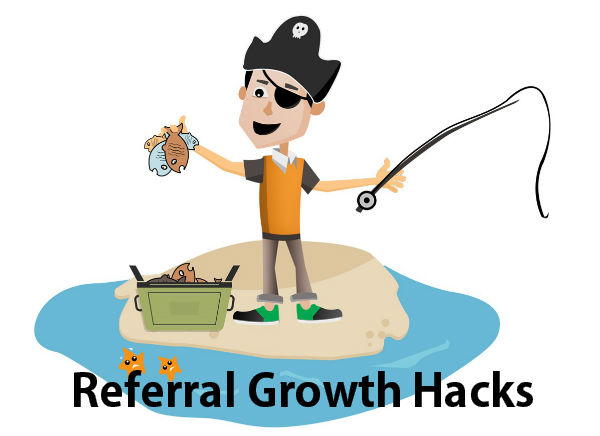
88. Double Loop Referral Program
Dropbox made this technique popular by rewarding you with more storage when you refer someone, while at the same time giving that new referred user more storage as well.
The genius in this particular example is that it doesn’t cost them any revenue. Whereas most double loop referral programs offer to give users a discount and then give a discount to the new referred users. This is still a good option, but does your product/app offer something else that users will find of value?
89. In-App Sharing
Allow users to share milestone achievements or something they can be proud of and will want to share.
90. Two Way Sharing
Does your app/product facilitate communication in any way between two parties? If not, is it possible/does it make sense for you to add this functionality?
91. Ask for Shares in Your Application
Add a message to the top of the interface to encourage social shares.
“Help us spread the word by tweeting this message.” If you’ve built up a relationship with your user base and they like and trust you, they will be much more willing to help you.
92. Affiliate / Referral Program
Use systems like HasOffers, GetAmbassador, or ReferralPop to track everything.
Keep affiliates engaged with email drips and regular communication.
You will want to have product/market fit first, and you will want to make sure you have optimized the onboarding experience before rolling out a program like this.
93. Use Links in Your Email Signature
I use WiseStamp and include social media links, as well as a call out to the latest blog post from our RSS feed.
94. Ask for Shares in ALL Emails
On ALL email correspondence, ask for tweets/shares. This includes your email drips and onboarding type emails as well as transactional emails (receipts, forgotten passwords, etc).
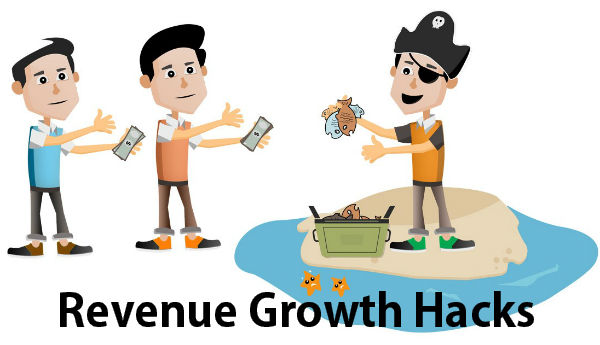
95. Downsell at Cancelation
When a user goes to cancel, offer to keep/store data or push them toward a lower tier instead.
If a user has been a customer for X number of months, offer a big discount (50% or so) to stay on their current plan. Make sure it’s understood this is a one-time offer and only because they met certain criteria.
96. Verified Program
Adwords offers a verified program for agencies who pass their test/budget spending requirement.
This sort of verified program works really well if you work with consultants, business coaches, freelancers, marketers, etc.
97. “At Risk” Tagging
Within your analytics (KISSmetrics, MixPanel, Trak.io), you will be able to find obvious patterns from users who cancel. It could be something as simple as “have’t logged in for 2 weeks.” These should get an “At Risk” designation and be flagged in your system for immediate follow-up. You need to re-engage them.
98. Exit Survey
Make money from website visitors who leave by knowing why they left.
- Ask why they weren’t interested and what they were looking for.
- Use this data to improve your marketing and/or your app with the feedback.
- Let them know you can follow up with them in the future as the product evolves to meet their needs.
99. Add Professional or Concierge Services
Offer to provide services such as helping them get setup/integrated, contract work, complimentary services, etc to add revenue.
100. Annual Payments
Give customers the option to pay with annual payments. Reward them with X% off or # of months free. This gives you a large sum of cash upfront which can be put back into marketing.
Conclusion
Some of these may, or may not, apply to your particular business. Take what you can use. If you have other growth hacks you have implemented and would like to share, please add them in the comments.
Any additional tips you’d recommend?
Image credits
Featured Image: TheStocks.im




